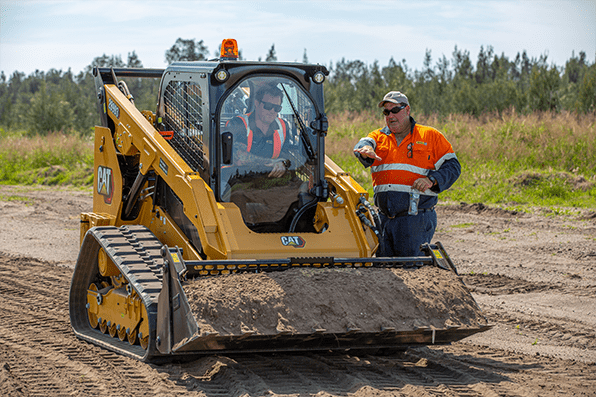Build your business


The earthmoving industry is on the up and up, with generous funding pledged for infrastructure investment all over Australia and a vast array of building and upgrade projects in the pipeline. In other words, now might be a great time to consider either starting up your own earthmoving business or branching out in your existing one.
Where to begin, though? We spoke to three experts about how to set up or grow your own earthmoving business. Here’s what they had to say.

When it comes to setting up a business, earthmoving or otherwise, the primary factor will almost undoubtedly be finances. According to Total Capital Management Manager Brett Inglis, financial planning is key.
“We have a number of earthmoving businesses on our accounts at the moment. We have got sole traders through to businesses that own 15 to 20 large excavators. A key part of our advice for somebody coming in, or those looking to grow, from a financial perspective is to make sure they have capital behind them,” he said.
Within the earthmoving sector, no doubt a large chunk of early funds will need to be put towards equipment. However, Mr Inglis believes that acknowledging there will be an initial outlay will help you plan ahead.
“The first thing to do is get in touch with a bank manager who specialises in asset finance,” he said.
“Bring with you a good business plan and a strategy about how you’re going to move through the various stages. And depending on available capital, we’d suggest easing into it with a few machines, and then scaling up as you start to get some footing.”
Once a level of cashflow starts coming in, there can be additional investment into more people and more machines. According to Mr Inglis, one of the most valuable and limited resources earthmoving owner-operators have is time.
“As the business grows, time is one of the main resources which starts to get stretched,” Mr Inglis said.
He recommended sole operators began to let go of certain responsibilities in the business, identifying where their key strengths were and to find people to fill the gaps that they are struggling to fill themselves.
“They could hire someone to look after the back-office roles such as invoicing and creditor management. These are essential functions which need to be maintained. Most operators have a lot of key in-depth industry knowledge, they can create significantly more value for the business by using their time and applying this knowledge, as opposed to performing the administrative office roles,” he says.
Another area to consider once the business is up and running is setting aside some savings to protect owner-operators against downtime.
“We always recommend people have a separate savings account running alongside the main business account,” Mr Inglis said.
“Then extra money can be put aside to help with areas such as tax payments, or as a working capital reserve if you have a couple of weeks or months which are slower due to bad weather or other factors. You want to have a reserve to avoid running into a cash flow problem.”

When you’re setting up any business, legal experts say the rule of thumb is to protect yourself. Agreements, contracts, warranties and invoices all need to be in place and properly checked before jumping in the cab.
Having a reputable insurance broker is vital in order to ensure your insurance is giving you adequate protection. Procedures and documents need to be scrutinised to ascertain how risk can be minimised as much as possible to avoid any claims made against you, such as warranty issues.
To make sure you’re completely covered, it’s recommended you talk to a reputable accountant, insurance broker and legal professional while you’re still in the planning stages of your earthmoving business. And if you’re already passed that stage? Make sure you check your existing agreements and insurances will pass scrutiny by getting them assessed by an expert.

Get started on social media and build a community interested in your business. Part one involves getting setup for social, choosing channels and deciding what to post and when.

Operator training can help you understand the features and functions of your Cat machine to get the best performance possible. Read about the types of operator training offered at the WesTrac Institute.